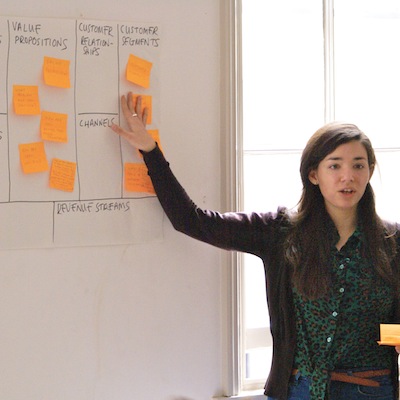Internships are, rightly, under scrutiny at the moment. And, while at Student Hubs we do not advocate that internships are for everyone, we do believe that when internships are fair and accessible, are entered into with an expectation of mutual benefit and interns are well-supported, they can be successful. Done well, students can gain good experience, grow their networks and use their experience as a springboard into a social impact career.
In order to ensure this as far as possible, we run our internships through a dedicated programme and all of our host organisations agree to a fair internships policy. This blog outlines the work we do with Host Organisations to ensure fairness, accessibility, mutual benefit and good support.
First of all, internships must be fair for all.
Students should be able to access good internships based on merit, not on who they know. This is why we run recruitment for a group of organisations: it means they can access a larger pool of potential talent, and students aren’t held back by trying to find opportunities in a sector that simply can’t invest in publicising opportunities widely. Our selection process is also fair and transparent. We recruit students using a careful and consistent criteria and select candidates through a written application and an interview.
Interns must be fairly rewarded for the work they do and the expectations of them remain appropriate. Any organisation that turns a profit must pay its interns National Minimum Wage. Charitable and voluntary organisations may take on interns on a voluntary basis, however this means that they are not expected to work full time hours. These interns must also have travel and food expenses covered, as a minimum remuneration. Lastly, we do also encourage all organisations to pay a wage appropriate to the work that the intern does.
Internships must be accessible.
Organisations should be flexible and innovative in finding ways for more students to be able to gain experience. We place students with organisations in seven different cities allowing plenty of opportunities beyond London. We reason that many students we work with have or can find accommodation in the cities where they go to university, so we focus on finding placements in these cities. Furthermore, we encourage hosts to help their interns to find accommodation if they do find themselves needing somewhere to live over the summer. We also welcome e-internships – while they need to be carefully managed, designing placements that are not location specific, can be performed remotely and limit travel open opportunities up to more students. We also ask that hosts are flexible in the length of the placement and the hours undertaken. This is a legal requirement when recruiting voluntary interns, but also means that students can intern alongside other work or can work from home, with occasional travel to their host organisation where necessary.
Internships must be of an appropriate length When internships are flexible more students can do them; however, we don’t support long voluntary placements even with charitable organisations. We ask that placements longer than three months are paid, regardless of the organisation’s charitable status.
Internships should focus on mutual benefit
Interns should be given autonomous projects that allow them to develop. Our hosts often offer challenging and interesting placements, and this is what makes the scheme so worthwhile for the students taking part. We try very hard to match students to host organisations, according their needs and availability, but also according to the experience and skills they hope to gain. We then ask that hosts flex projects as far as possible, to ensure the intern experience is really suited to their interests and abilities. However, no internship should involve tasks that are absolutely crucial to the organisation’s work, interns should be adding depth and capacity, and essential work should not rest with them.
Interns should be offered access to training and other development resources. We provide students with training, right from the point that they are accepted on to the scheme. We also ask that host organisations offer whatever resources they can to interns, this could be training, but also mentoring, the opportunity to join interesting events and meetings, and useful introductions.
Interns need to be well supported.
Interns should have a designated mentor or supervisor and be supported throughout their placement. We recommend hosts establish one person to supervise and support their intern(s). We also outline basic support that should be offered, this includes a comprehensive induction, regular supervision or check in throughout the placement and an exit interview as the placement comes to an end. To add to this, Student Hubs also offers support to interns (and Hosts). Students have staff in their Local Hubs to go to for support and guidance and there is a dedicated staff member in our National Team who runs the scheme and is on hand through the application and matching process, during the placement and even after the summer.

